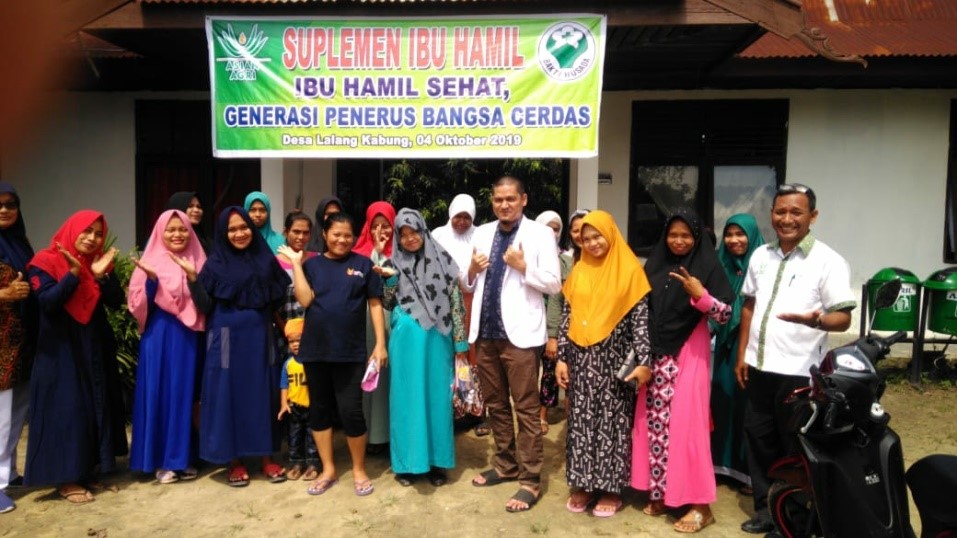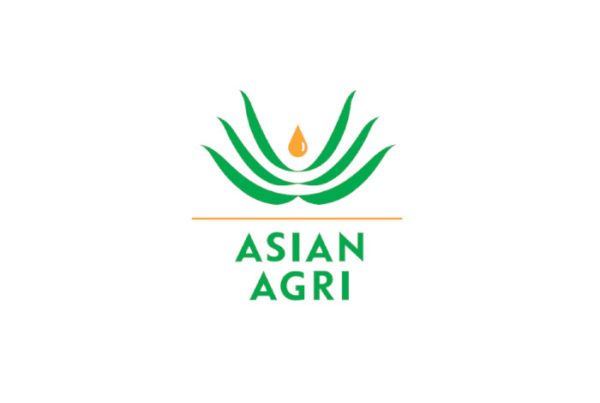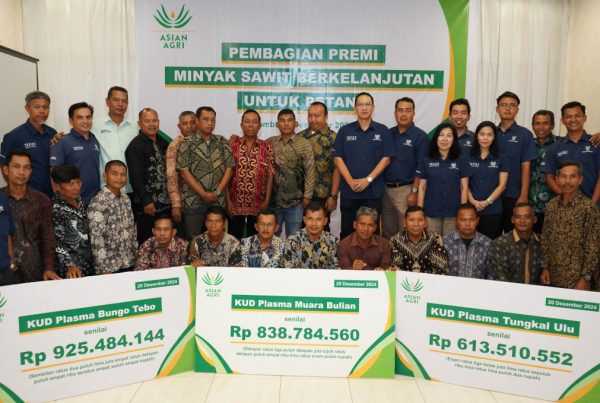Pelalawan, Riau, 4 October 2019 – To support the Indonesian government in preventing stunting or chronic malnutrition problems which result in growth disorders in children, Asian Agri today held a health counselling session to educate pregnant women in Lalang Kabung Village, Pelalawan District.
According to the 2018 Global Nutrition Report, 150.8 million children under five years old or 22.2 per cent of children under five in the world are stunted. Meanwhile, in Indonesia, the 2018 Basic Health Research (Riskesdas) survey conducted by the Health Research and Development Agency (Litbangkes) showed that the stunting rate was 30.8 per cent in that year. Although this is a decrease from 37.2 per cent in 2013, this figure is still relatively high as it is above the standards set by the World Health Organization (WHO), which is below 20 per cent. Indonesia has therefore been listed as one of the countries in the region which is experiencing acute malnutrition.

Zia Ulhaq, Asian Agri’s doctor explained that holding health counselling activities in rural areas helps the government to raise awareness among pregnant women and families about the importance of preventing stunting by providing adequate nutrition for infants from when they are still in the womb until they are two years old.
Lindu Simatupang, Public Relations Officer for PT. Inti Indosawit Subur (Asian Agri) in Buatan, Pelalawan, said: “Providing additional nutrition for pregnant women is one of our concerns as we care about our surrounding community and preparing the next generation with adequate nutrition for their optimal growth and development.”
Meanwhile, Ahmad Ritonga, Head of Lalang Kabung Village, said the community needs to cultivate a healthy lifestyle with assistance.
“The government has limitations when it comes to implementing various health programs. Therefore, collaboration with various parties, including companies like Asian Agri, is required to help achieve health goals,” he said.
Asian Agri’s health counselling session was organized as part of its Corporate Social Responsibility (CSR) program.
About Asian Agri:
Asian Agri is one of Indonesia’s largest palm oil producers since 1979. Today, the company manages 100,000 hectares of land and employs over 25,000 people. A pioneer of the Indonesian government’s Trans-National Government Migration (PIR-Trans) program, Asian Agri works with 30,000 plasma smallholders in Riau and Jambi who operate 60,000 hectares of palm oil plantations, as well as independent smallholders, bringing about positive impact on their quality of life and economic development.
Implementing a strict “no burn” policy and best practices in sustainable plantation management, Asian Agri has helped its smallholder partners improve productivity, yield and supply chain traceability, while assisting them obtain certifications. The company’s mills are technologically advanced and energy self-sufficient, minimizing greenhouse gas emissions.
Asian Agri is a member of the Roundtable on Sustainable Palm Oil (RSPO). More than 86% of both owned plantations in North Sumatra, Riau & Jambi provinces and 100% of scheme smallholder plantations in Riau & Jambi provinces have been RSPO certified. All plantations, including those owned by smallholders, have been certified by ISCC (International Sustainability & Carbon Certification). The company has also been 100% ISPO (Indonesian Sustainable Palm Oil) certified.
The company’s operations are ISO 14001 certified, while its Learning Institute and nursery research center in Riau province, Indonesia are both ISO 9001 certified. Asian Agri’s R&D Center in North Sumatra was also given a certification by the International Plant-Analytical Exchange at the WEPAL lab at Wageningen University in The Netherlands, for its high standards.
For further information, please contact:
Maria Sidabutar
Head Corporate Communications
E-mail: maria_sidabutar@www.asianagri.com
DID: +62 21 2301 119




